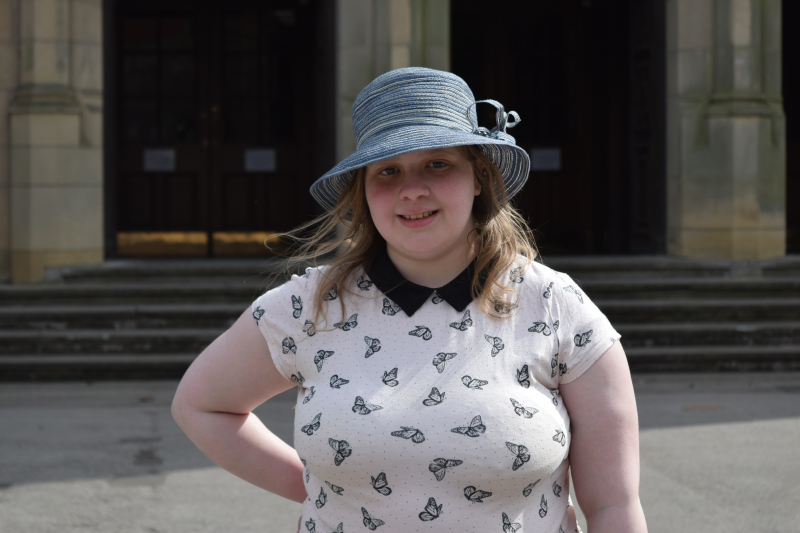For Katie Potts (First year, PhD Computer Science), who was supported at University through the Sarah Hawkins Young Carer Award, her degree was her sanctuary. The financial assistance she received from donor Alan Hutchison meant she could live at home and help her mum care for her brother who has cerebral palsy and epilepsy, and her sister who has autism, whilst commuting onto campus to study. Her experiences, especially during lockdown, have had a profound impact and she is now studying for a PhD to help people with disabilities access modern technology.
 While there is some debate over the number of young carers in the UK, there is a growing consensus over the major impact it can have on their lives and educational attainment. For young people with the huge responsibility of providing support to a family member with a long-term illness or disability, university can seem a distant dream.
While there is some debate over the number of young carers in the UK, there is a growing consensus over the major impact it can have on their lives and educational attainment. For young people with the huge responsibility of providing support to a family member with a long-term illness or disability, university can seem a distant dream.
Katie describes the experience: 'I commuted rather than lived in halls, as my mum needed the extra help at home. I had to leave as soon as lectures ended and run to get my train, so it did feel like my experience was different to most other students. I found it really hard, especially at first. I have some additional needs myself, so it felt like a big adjustment, and it took me a long time to make friends and become more social. The financial support and some help through Student Services made a huge difference. By my third year I had set up and was chairing the Pokémon society; it was a great way to meet people and make friends, and a big achievement for me.'
It was hugely daunting and very strange for me to be the first in my family to go to university. It just wasn't an option for my older brother and sister because of their additional needs, but it was something I really wanted to do.
The family's experience, including her siblings not being able to access services during lockdown, have given Katie an insight into support around neurodiversity and a passion to make changes. Her PhD is focused on emulating the calming impact of sensory rooms within a virtual reality space, a practical step towards her dream of accessible services for all.
For Katie, the best thing about University is the confidence it gives her. 'Growing up, I didn't really know what was normal or what to expect of myself. My mum always told me I deserved a future as well, but being from a single parent family where she was supporting my siblings full time, made a career feel really far away. Being part of University, and being around people who had really high expectations of themselves really changed me. University has been the making of me.'
The donor - Alan Hutchison
'I cared for my wife Sarah Hawkins for five years until she died in 2014; as an adult it was a huge strain and a grievous responsibility. But think of the pressure on a child or young person. They have to support parents or siblings to take their medicine and keep their appointments, they have to keep the house and themselves clean, they have to shop, then they have to study and finally they have to provide emotional support often beyond their years. Truly, they sacrifice their childhood.
'I was determined to keep Sarah's name alive in as positive a manner as I could think of, which is why I approached the University of Birmingham with the idea of founding scholarships to help young student carers manage their way financially through university. I am committed to help young carers achieve their ambitions. They deserve no less.'
The University outreach worker - Emily Birkett
Each year applicant numbers for the awards have risen and we are desperate to help as many young carers as possible. The support we give is often what enables these young carers to stay at University, which can be life-changing both for them and for their families.
'Until the young carer awards were set up, we didn't have a means to identify young carers who were studying here. Now as well as identifying those in need of financial assistance, the process also allows us to better understand the additional responsibilities and challenges these students face.
The students' stories give humanity to these experiences and act as a driving force for us to ensure we provide the level of support needed; as tutors, colleges, and the University as a whole.